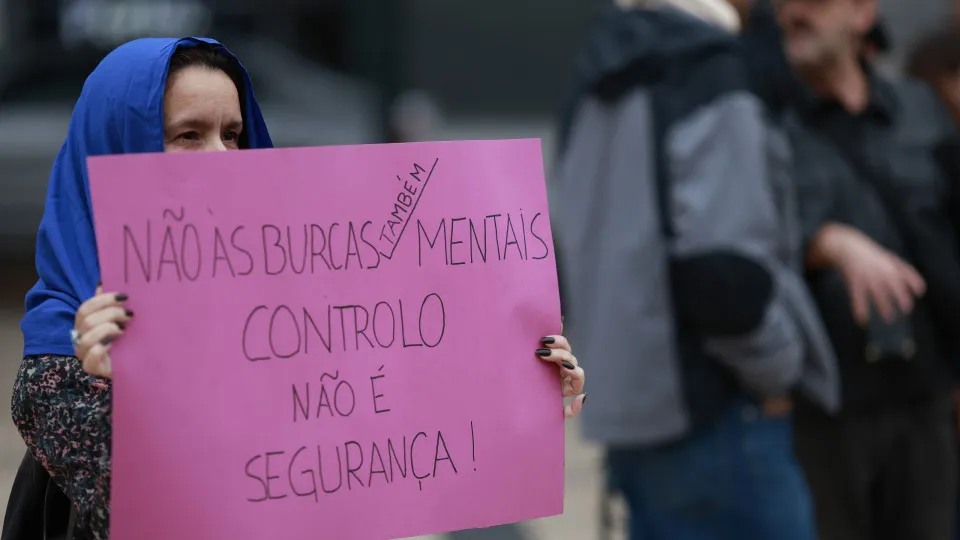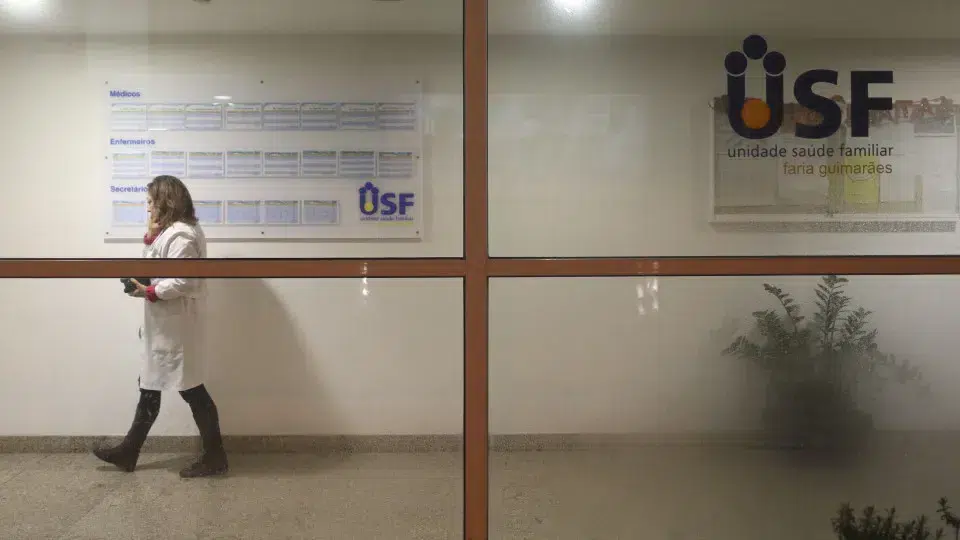
“I identified with the protest, mainly because of the title – ‘Don’t Throw Burqas Over Our Eyes’ – since, in fact, this is not an issue in Portugal. The real issues are housing, the national health system, and education,” said Tânia Ferreira, 34, a doctoral scholarship holder at the University of Minho, on Avenida dos Aliados.
The protester lamented that “the majority in parliament does not unite to combat these real problems, which affect the entire population” and are “genuine issues.”
The burqa “is a highly publicized matter meant to divert attention from what’s important,” she stated, adding that the country’s issues are “renting a house and facing difficulties,” “low salaries,” or wanting a consultation and “waiting for months.”
Tânia Ferreira understands “the arguments saying that women who wear burqas, if they don’t, are also deprived of public space and freedom,” but “that’s not what concerns most Portuguese today.”
“Domestic violence is also a problem. Every year, we see the number of women murdered and the number of domestic violence complaints increasing, and what has the parliament done specifically about this? We don’t see much, but the majority came together over an issue with no particular relevance to approve something that doesn’t make sense,” she stressed.
The protester admitted not having “a firm position” on the freedom a woman wearing a burqa actually has in cultures like Afghanistan, where “there is a patriarchal system forcing her to wear it,” but in Portugal, she finds it “odd that the state dictates” what a woman should “wear or not wear.”
“An uproar and confusion were created over a matter that, in my view, isn’t one,” she noted.
Trainer Sandra Monteiro, 50, agreed that the issue of the burqa “isn’t relevant in Portugal” but believes that “in some situations, women are forced to wear it,” as is the case in “isolated, closed cultural countries.”
“But Portugal isn’t like that, so it’s normal for people to accept differences. What is happening at the moment in Portugal is: everything different is not fitting in, apparently. We have to show that, indeed, someone wants to pit us against each other, but we can’t accept it,” she pointed out.
The trainer observes that “for at least two years, things have considerably worsened in Portugal,” especially concerning “women,” where there is “significant regression.” She believes that besides “new emerging parties,” the international dynamics themselves can “jeopardize democracy.”
“I will not allow Portugal to turn into a dictatorship, and I will participate in everything needed precisely for this reason,” she noted.
Lastly, Álvaro Sampaio, a 74-year-old retiree, came from Vila Nova de Famalicão (district of Braga) to Porto to participate in this protest but confessed his “disappointment” at finding “so few people,” especially since “the purposes of the protest were important.”
For the retiree, the burqa “wasn’t a matter deserving the attention it received nor warranted a law being voted on in the Assembly of the Republic.”
“I think it’s very petty, not sufficient cause. There are many more problems that Portuguese society faces, from housing, health, education, so many things. I’ve never seen anyone wearing a burqa. Neither here nor in Lisbon, so I think it’s of no interest,” he summarized.
The “Don’t Throw Burqas Over Our Eyes” protest, called by historian Raquel Varela on social media following the approval of Chega’s bill proposing to ban the use of the burqa in public spaces in Lisbon, Porto, and Braga, calls for collective mobilization for a free, equal, and inclusive society.




